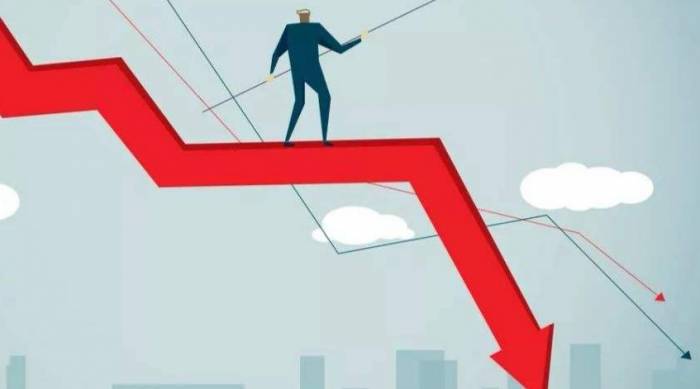Fed's Unexpected 50bps Rate Cut: How Big Is the Impact on A-Shares?
Here is the translation of the provided text into English: Last night, a significant announcement was made: the Federal Reserve cut interest rates by 50 basis points.
Powell made a strong statement: The Fed is not in a hurry to cut rates and warns that no one should consider a 50 basis point rate cut as a new trend.
If appropriate, the Fed can speed up or slow down the pace of rate cuts, or even pause.
Interpretation: The market generally believes that a 25 basis point rate cut by the Fed indicates a soft landing for the US economy, while a 50 basis point cut suggests a poor performance and a hard landing risk.
In response, Powell must convey confidence in the US economy, release hawkish statements, and also impact the Chinese stock market.
The Fed announced a 50 basis point rate cut last night, causing a straight surge in global asset stocks, followed by Powell's speech, which led to significant fluctuations in stocks, commodities, and exchange rates.
Coach believes that the US rate cut is inevitable, and there will be at least one more rate cut this year.
In terms of Chinese assets, the FTSE A50 closed in the red, seemingly unfazed; Chinese concept stocks fell more than they rose, and the FTSE China 3x Long ETF fell by 1.45%.
Advertisement
If the mysterious funds do not intervene in A-shares today, it could be a disaster!
Secondly, China Shipbuilding's resumption of trading offers two options to shareholders of China Heavy Industry: 1.
An 80% cash discount; 2.
Exchange of 7.49 shares for 1 share of China Shipbuilding, resulting in a direct loss of 6.8% per share based on the suspended price.
Interpretation: This explains why both China Shipbuilding and China Heavy Industry fell sharply the day before the merger and reorganization; it turns out that someone knew in advance and fled first.
Financial consumers are really struggling; they were hoping to benefit from such a significant merger and reorganization, but after the sharp drop the day before the merger, even after the successful reorganization, shareholders of China Heavy Industry still suffer losses.
Where can they seek justice?
Thirdly, the State Council: Studies measures to promote the development of venture investment, and as soon as possible to clear up the blockages and bottlenecks in the "raising, investing, managing, and exiting" stages, supporting qualified technology companies to go public domestically and abroad, and vigorously developing equity transfers and merger and acquisition markets.
Interpretation: With such low market confidence, instead of considering how to boost investor confidence, there is support for going public, which will definitely impact the market; recently, mergers and reorganizations have been frequently mentioned, but stocks involved in recent mergers and reorganizations have not seen significant increases, especially the merger and reorganization of China Shipbuilding and China Heavy Industry, which resulted in losses, further damaging market confidence.
Fourthly, India surpasses China in the MSCI Global Index.
India's weight is 2.35%, while China's is 2.24%.
In 2019, China's stock weight in the MSCI was five times that of India.
Interpretation: There is nothing surprising about this; over the past five years, the Bombay Stock Exchange Index has been on a continuous rise, with a doubling of gains, while the A-share market has been on a downward trend, especially in the last three years, continuously hitting new lows.
The Fed's rate cut cannot save the financial consumers of A-shares; what the market lacks now is confidence.

With more than 3,000-4,000 individual stocks falling and continuously hitting new lows every day, who would be willing to enter this market for trading?
Yesterday, Conglin Technology on the STAR Market had no transactions for 15 minutes, with a daily turnover of only over a million; there were hundreds of stocks with a turnover of less than 500,000 in the two markets.
Since the decline on May 20th, mysterious funds have been heavily buying near the 3,000 point level, but now at 2,700 points, the buying strength has decreased.
Have they also been trapped, and is the capital insufficient?
In particular, the protection of the mysterious funds is at the expense of financial consumers, and such protection intensifies the clearing of shareholders.
This year, the net inflow of funds into stock ETFs has reached 733.6 billion, but the index continues to fall, indicating the wrong direction.
This market decline is different from the end of January and the beginning of February, when it was caused by the bursting of snowball financing and margin calls, and the market quickly strengthened after the rescue and the appointment of the new village head.
But this time, it is mainly due to the lack of market confidence, so it is necessary to establish investor confidence, which requires a longer time to repair.
Otherwise, strong policies need to be introduced, but judging by the current performance of the authorities, it's difficult!
Or the market continues to fall until the real market bottom appears.
As the saying goes: everyone knows how to do it for the market to rise, the problem is, those who have the ability to change do not want to do it, and those who want to do it do not have that ability.
Investment has risks, and entering the market should be done with caution!
Make A Comment